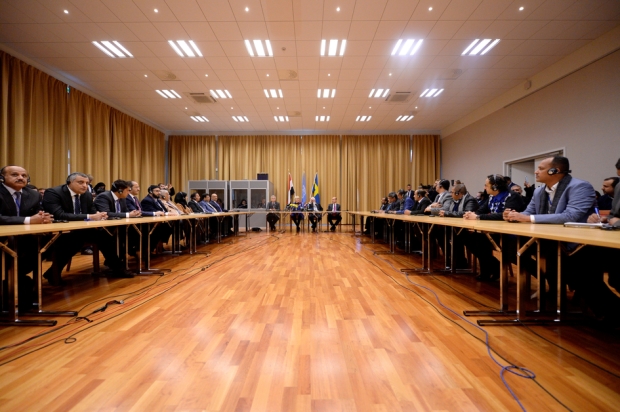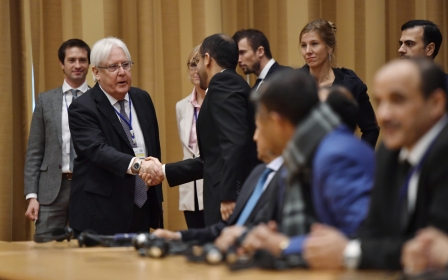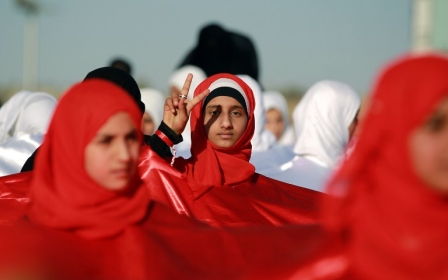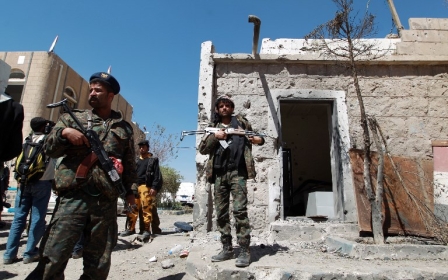Houthis call for transitional government at Yemen peace talks
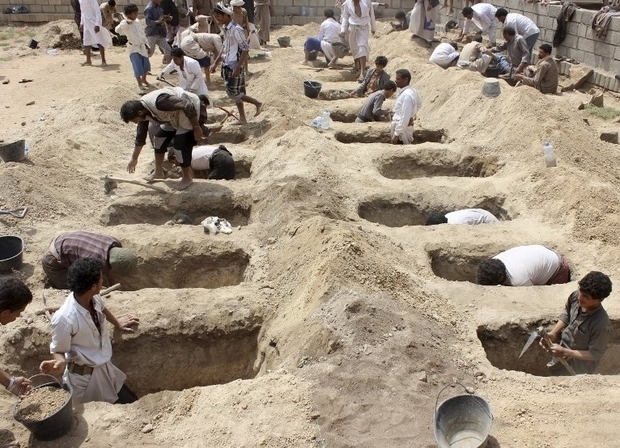
The negotiator for Yemen's Houthi rebels has called for a transitional government representing "all political parties" on Saturday.
Houthi representative Mohammed Abdusalam also called for a neutral zone in the key port city of Hodeidah, the focal point of clashes between Houthis and a Saudi Arabia-backed coalition.
Speaking to Reuters on the sideline of peace talks being held in Sweden, he also suggested the potential for the UN to have a role with Sanaa airport, in an effort to have it reopened.
The Houthis seized control of Sanaa, the Yemeni capital, in September 2014 and control several major cities in Yemen, including Hodeidah.
Abdusalam's statements came after a "difficult" first day of talks on Thursday, where both sides presented demands but agreed on a prisoner swap.
Speaking on condition of anonymity, one UN official said the talks marked "the beginning of difficult work".
On the table at the Sweden talks is the fate of Hodeidah, the last rebel stronghold on Yemen's Red Sea coast and the conduit for 90 percent of vital food imports.
Prior to the talks, the UN sought to temper expectations, saying they aim to achieve "confidence building" between the two sides.
The Saudi-led military coalition, which includes troops trained by the US and the UAE, has for months led an offensive to retake Hodeidah.
The battle has sparked fears for more than 150,000 civilians trapped in the city. Saudi Arabia and its allies accuse the rebels of smuggling arms from Iran through Hodeidah, a charge Tehran denies.
"We'd like to take Hodeidah out of the conflict because ... it's the humanitarian pipeline to the rest of the country," said UN envoy Martin Griffiths.
A Saudi-led coalition, which includes the United Arab Emirates, started a military campaign in Yemen in 2015 to push back the Houthis and restore Yemeni President Abd Rabbuh Mansour Hadi to power.
The country has since been pulled into a dire humanitarian crisis, with as many as 14 million people currently on the verge of famine, the UN recently warned.
As the talks started, a World Food Programme official warned that even halting the war would not end hunger in Yemen.
Sanaa international airport, in the rebel-held capital, has been largely shut down for years. It has been the target of air raids by the Saudi-led coalition, which also controls Yemeni airspace.
"We would like to see that airport open, but it needs to be assessed," Griffiths said. "We'd like to see progress on this."
International pressure to end the conflict has been ratcheted up in recent weeks after the murder of Saudi journalist Jamal Khashoggi focused attention on Saudi Arabia's foreign policy.
Griffiths' plans to host talks in Geneva in September collapsed on the opening day after the rebels refused to leave the Yemeni capital in case they were not allowed to return.
Meanwhile, a group of Yemeni women has demanded a seat at the talks, which have been male-domninated.
"This is very unfortunate ... [and] it has been proven that when women are involved, lasting peace can happen," said Kawkab Al-Thaibani, a Yemeni woman who works for the Women for Yemen network, told Middle East Eye.
"Women in Yemen are paying the highest price of war. I believe that no lasting peace will happen ... without women [being involved] in the peace negotiations."
Pictures released of delegates attending the talks showed only one woman present at the negotiating table from both sides of the civil war, which has been going on for nearly four years.
Middle East Eye delivers independent and unrivalled coverage and analysis of the Middle East, North Africa and beyond. To learn more about republishing this content and the associated fees, please fill out this form. More about MEE can be found here.


